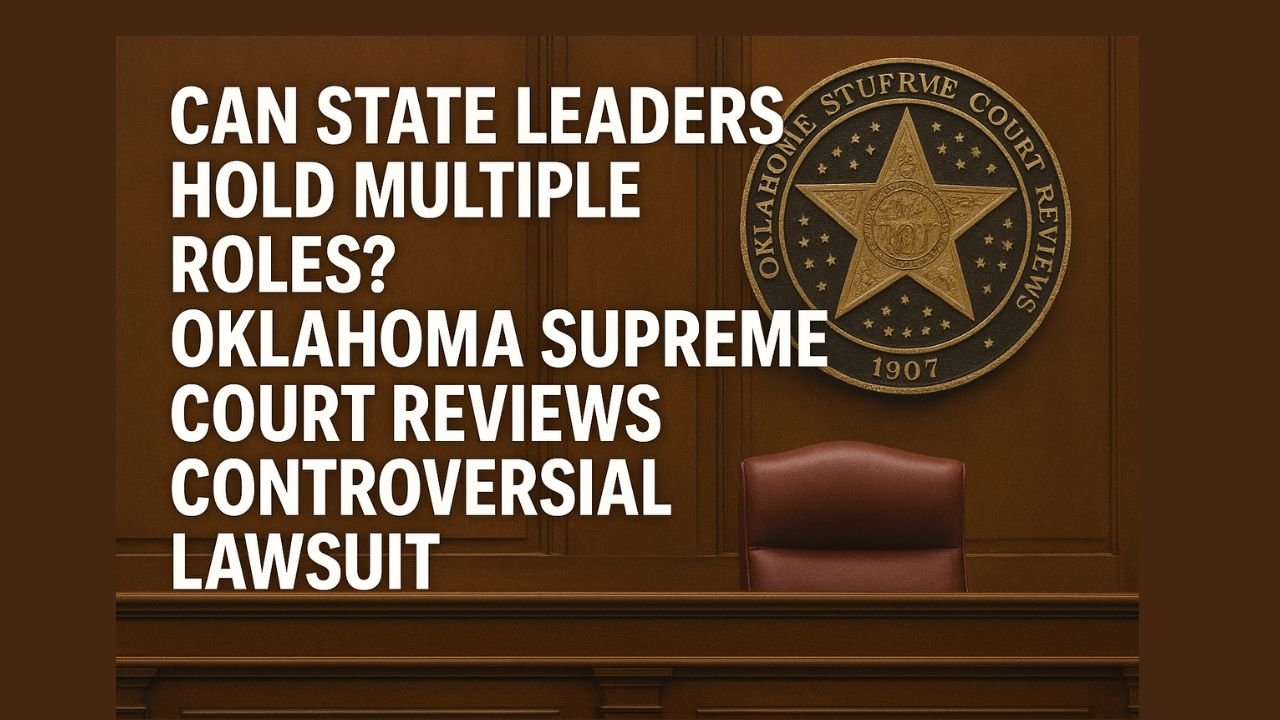The Oklahoma Supreme Court is currently evaluating a high-profile legal case that centers on whether state officials, such as cabinet secretaries, are permitted to hold multiple public offices at once.
This case has sparked a significant legal and political conflict between Governor Kevin Stitt and Attorney General Gentner Drummond.
Origin of the Dispute
The lawsuit originated after AG Drummond released a legal opinion in 2023, asserting that Tim Gatz, who was then serving as Secretary of Transportation, as well as leading the Oklahoma Turnpike Authority (OTA) and the Department of Transportation (ODOT), could not legally occupy three roles simultaneously. Gatz later resigned from the cabinet and OTA positions following the controversy.
Governor’s Legal Team Defends Tradition of Dual Roles
Governor Stitt’s attorneys argue that previous administrations have routinely allowed cabinet secretaries to hold additional roles, citing long-standing executive practices.
“If the lower court’s ruling is upheld, future governors may have to appoint 15 additional officials, which could cost the state nearly $1 million more annually,” stated Benjamin Lepak, counsel for the governor.
Stitt’s legal team also emphasized that executive orders in past decades have granted sovereign authority to cabinet secretaries, effectively making them eligible to serve in more than one capacity.
Attorney General’s Argument: A Shift in Legal Authority
On the other side, Solicitor General Garry Gaskins, representing Drummond, backed the opinion that cabinet secretaries did not originally hold sovereign authority when the cabinet system was first established in 1986.
That changed in 2021, Gaskins argued, when a legislative amendment gave secretaries rule-making veto powers, effectively elevating their legal status and making them “officers” under the law.
This distinction is crucial because Oklahoma law prohibits an individual from holding two “offices of trust or profit” at the same time.
Court Proceedings and Reactions
During the hearing, justices actively questioned attorneys on both sides. Justice Noma Gurich raised a critical point: “Why has there never been a challenge before 2021?”
The justices concluded the session without a final ruling, and a formal decision is expected in the coming months.
The Oklahoma Supreme Court’s decision will likely have far-reaching implications on how future governors structure their cabinets and delegate authority.
At the heart of the case lies a broader debate about government efficiency, constitutional compliance, and the balance of power between the executive branch and the legal framework.
As the justices deliberate, both legal and political observers await a ruling that could redefine the limits of dual office-holding in the state.




